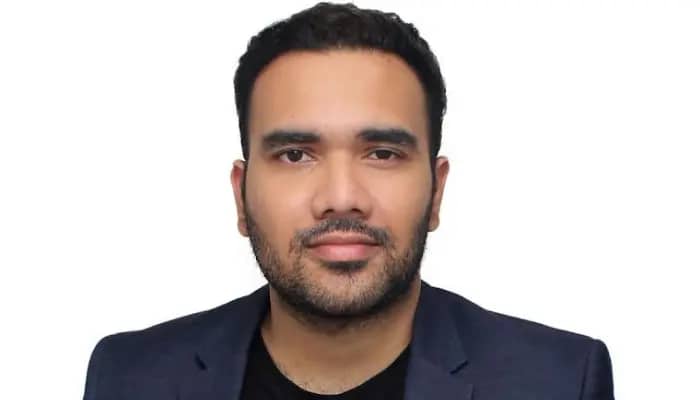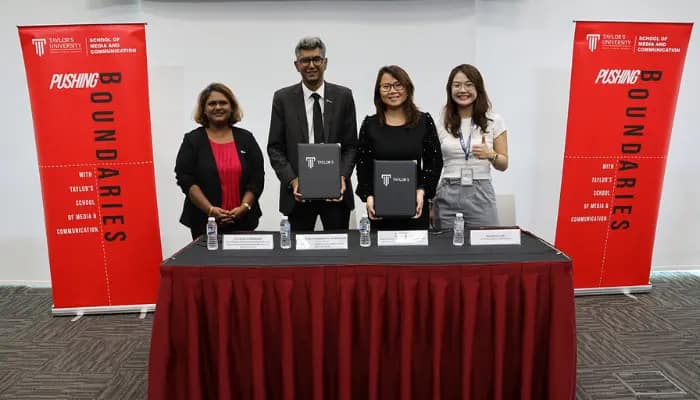Kuala Lumpur, Malaysia – Daler Kendzhaev, most recently the head of Annalect Malaysia, has been promoted to managing director for investment and specialist solutions at Omnicom Media Group (OMG) Malaysia. In an exclusive interview with MARKETECH APAC, Kendzhaev said the new role will see him work with partners and vendors on the investment and partnerships front and manage OMG’s specialist solutions – Annalect, TransAct, and Digital Performance.
Kendzhaev’s newly created role comes as OMG believes it can unlock better solutions for clients through centring the capabilities of investment partnership, specialist solutions, and data under one leadership.
He added that the role is about continuing the momentum OMG has already built by enhancing the agency network’s current relationship with partners through a connected and collaborative strategy, with a singular focus on delivering holistic and innovative products. This will be done while continuing in the area of future-facing data and tech solutions.
As OMG has great ambitions to drive momentum for clients and partners, Kendzhaev said the goal for the next six to 12 months is to improve the synergy between the investment and partnership teams and to meet clients’ needs in the rapidly evolving digital ecosystem.
“At Omnicom Media Group, we are poised to take an active role in developing and delivering the incremental value to our clients through these investment solutions, and also advancing our performance value for our clients,” he added.
Kendzhaev spent nearly four years as head of Annalect Malaysia during which he oversaw the increased adoption of Omni, Omnicom’s industry-leading marketing orchestration and insights platform, across OMG Malaysia and its agency brands.
Under his leadership, Annalect was hungry for growth and adopted a first-mover mindset. “We treated Annalect in Malaysia like a start-up within a large organisation. We had great support from our regional teams that allowed us to achieve really great results in various areas within the group,” Kendzhaev explained.
Some of the initiatives Annalect have worked on include solutions around data automation and visualisation, as well as consulting and enabling marketing tech for brands. OMG also obtained Google Analytics (GA) partner status in Malaysia with certified specialist team to assist clients in their GA4 migration journey.
Understanding industry challenges and opportunities in media investments
When asked about the challenges and opportunities in the media investment space, Kendzhaev said one thing that stands out is the complexity of the measurement metrics in the industry today, which leads to other growth areas.
“In Malaysia, we don’t really have an aligned way of measuring media investments both in the offline world with different methodologies for mediums like TV, especially when it comes to the return on investment. Moreover, there is also a complete lack of measurement in digital, which leads to lot of dysfunctions in decision-making for advertisers,” he explained.
He added, “The upcoming changes in the digital ecosystem without [third-party] cookies is going to add complexity when it comes to digital measurement. Marketers and businesses, are urged to focus on understanding the true impact of media investments on brand equity, sales or other business metrics that are important.”
OMG believes that the cookieless future is one part of where the industry is headed in a privacy-first world. Effective advertising is powered by a variety of signals, with traditional signals like cookies being one of them. With traditional signals deprecating soon due to high privacy concerns, the industry needs to consider new developments like Google PAIR and The Trade Desk’s Unified ID 2.0.
“Let’s take advantage of it. With this connected role, we can move at a faster pace with our clients,” Kendzhaev added.
He also noted that industry collaboration would be ideal in forming strategies and ideas and getting consensus in measurement approach. Nonetheless, OMG has been working on different solutions surrounding connected measurement, future signals, and the digital ecosystem.
“[These solutions] focus on solving measurement issues for various levels such as strategic management decisions down to the day-to-day operational tactics as well. That’s one of the key elements we are focused on in our business” he said.
Considering yet another delay from Google on phasing out third-party cookies, Kendzhaev explained that the whole idea behind the deprecation is to have a privacy-safe environment for advertising and not solely rely on traditional signals like third-party cookies. Given the news, he said marketers should continue progressing towards a privacy-centric approach to advertising.
“We are taking a comprehensive approach, which has been ongoing for a couple of years. Our approach starts with an audit, understanding where the clients are and the goals, they would like to achieve leveraging marketing tech. With that audit, we recommend solutions that are bespoke to the brand, that go across different elements: starting from having the right measurement framework in place, data collection and storage in the privacy-compliant way, to derive insights and improve consumer relationship,” Kendzhaev explained.
This ties in with building a privacy-safe environment and creating a unified view of the customer through UIDs. “Some of the clients that we work with have already started this journey. The delay also means advertisers have additional time to prepare for the change” he added.
T-shaped skill sets and optimism about the future
Talent is another key area Kendzhaev believes is crucial to the industry’s growth and it is important to have T-shaped skillsets in data and tech. “You want to understand how media works so you can bring value to what we do on a day-to-day basis and create solutions that will be more relevant to businesses today. Whether it’s the brands or advertisers or agencies or even vendors, we need to pay attention and invest more in terms of the talent, as well as upskilling them in understanding of what’s happening in the ecosystem that’s going to be critical,” he explained.
Despite all these challenges, he remains optimistic about the ever-changing media landscape.
“At OMG, we are constantly on the lookout for new partnerships driving that unique proposition and incremental value for our clients. Everything that we do within our partnerships has always had elements of how we can create unique value for our clients and that’s something that we’ve been central to our approach,” he concluded.
















